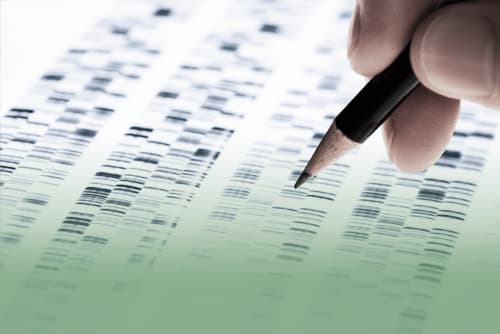With the rise of genetic testing, there’s also been an increased need for genetic counseling. Many physicians aren’t equipped to interpret the genetic testing results, which is why genetic counselors are so important in this newer era of advanced scientific health assessments.
“Our main job is to provide diagnostic testing options, counseling, and support for families who may be at risk for an inherited condition by investigating the health problems that are present in the family. I try to take puzzle pieces and assemble them to determine what's going on, because it can be kind of a mystery. Not everyone can necessarily interpret the genetic testing results on that end product. We’re also not here to ‘sell’ them on the idea of doing testing; rather just help individuals with options that are best for them and their families,” states Ian Wallace, genetic counselor at Summit Therapy & Health Services.
Wallace and his counselor colleagues also support other medical professionals, many of whom don’t have a background in genetics. The overall goal is to provide the patient the best care possible in their unique situation.
Ruling out Medical Conditions through Genetic Testing
Genetic testing can be helpful for people who want to gain a better understanding of why they're experiencing the medical problems they're having. Once a disorder is diagnosed, more personalized care and management can be administered.
Alternatively, ruling out disorders may also provide a sense of relief. “It's just less for people to worry about, and they can go on their way. Maybe they research if something else medically is going on, or maybe that is the end of their diagnostic journey. We've ruled certain things out so they don't have to worry about them anymore,” notes Wallace.
What Does Genetic Testing Test For?
Nearly 6,000 known genetic and chromosomal syndromes have been identified to date. Some of them are very rare, while others are quite common. Since genetics play such a major role in almost all aspects of health, the sheer number of possibilities can be an overwhelming topic to broach.
One way to break it down into a more palatable discussion is to distinguish different subsets of the purposes of genetic testing. The main areas of genetic counseling are:
-
Cancer (typically having a personal or family history of cancer)
-
Prenatal (during pregnancy or in advance of pregnancy)
-
Pediatric (e.g. assessment of children who have autism or developmental delays, birth defects)
-
Adult cases which don't fit neatly into one of the above categories
“Some of the more common adult syndromes are connective tissue disorders or cardiac syndromes, and we’re trying to find an underlying cause for them,” explains Wallace.
Cost of Genetic Counseling and Additional Considerations
One advantage of the availability of genetic testing has been that the financial burden has been reduced. Insurance companies generally cover at least part of the costs of genetic testing—depending on the type of test being performed (e.g. blood draw, saliva, cheek swab).
So, given all of this information… should you get tested? Wallace says it really depends on what the patient or the patient’s family members have experienced.
“If someone is concerned, they can talk to their primary care provider to see if they should be referred to a genetic counselor. I'm always happy to answer any questions by phone or email, if someone just has questions to see if they would be a good candidate or to talk about these options,” assures Wallace. Click the button below to send an email, or call Summit Therapy & Health Services at (509) 332-5106.

